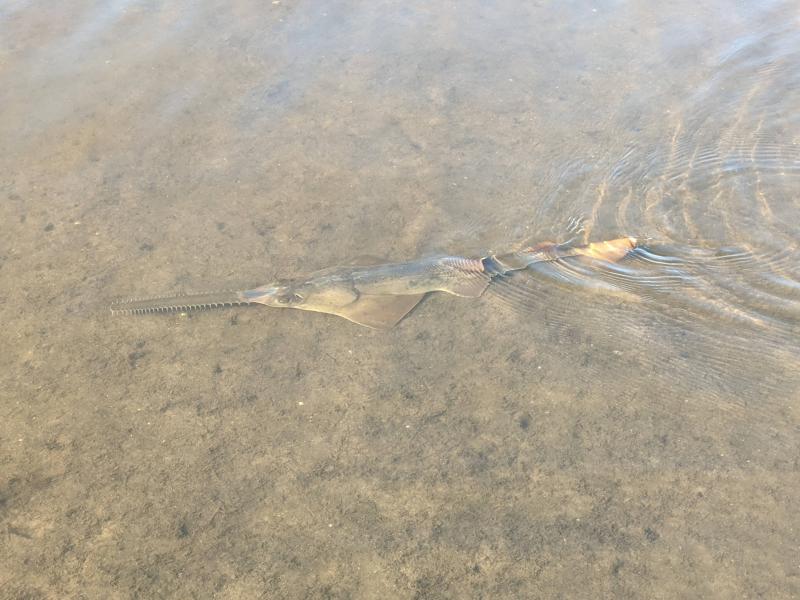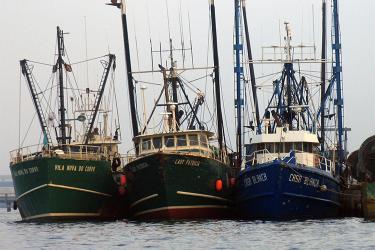Last month NOAA scientists Drs. Andrea Kroetz and John Carlson returned to Everglades National Park and Ten Thousand Islands National Wildlife Refuge. They resumed sampling for endangered smalltooth sawfish in their critical habitat area. NOAA scientists have been monitoring the relative abundance, distribution, and habitat use of juvenile smalltooth sawfish there since 2009. Critical habitat is a habitat area essential to the conservation of a listed species.
Part of our monitoring program includes acoustically tracking this species with long-term acoustic tags (5 and 10 year tags). These help us monitor migration patterns and identify specific habitats used by juveniles and adult sawfish. Learning more about the specific habitats that various life stages of sawfish use can help scientists refine critical habitat or even potentially designate new areas. This is particularly important for large juvenile and adult sawfish for which critical habitat has not yet been designated.
NOAA Fisheries’ biologists have deployed 26 acoustic receivers throughout the area to monitor tagged sawfish. During the May research expedition, they retrieved 20 receivers and downloaded thousands of detection data. Many sawfish that NOAA scientists and their partners have tagged since 2016 (more than 70 sawfish) were detected on our receivers.
Additionally, they also detected several species of shark, ray, and teleosts tagged by various state, federal, and non-governmental institutions. Our acoustic array is important for the long-term monitoring of endangered smalltooth sawfish. It has also proven to be important for monitoring the movements of many other species that call Ten Thousand Islands and Everglades National Park home.
Our continued sampling provided seven new sawfish that we captured, sampled, tagged, and released, two of which swam away with acoustic tags. The first sawfish implanted with a 10-year acoustic tag was a 7-foot female and a nearly 5-foot female was tagged with a 5-year tag. Overall, a successful research expedition that adds valuable data contributing to the recovery monitoring of smalltooth sawfish.





